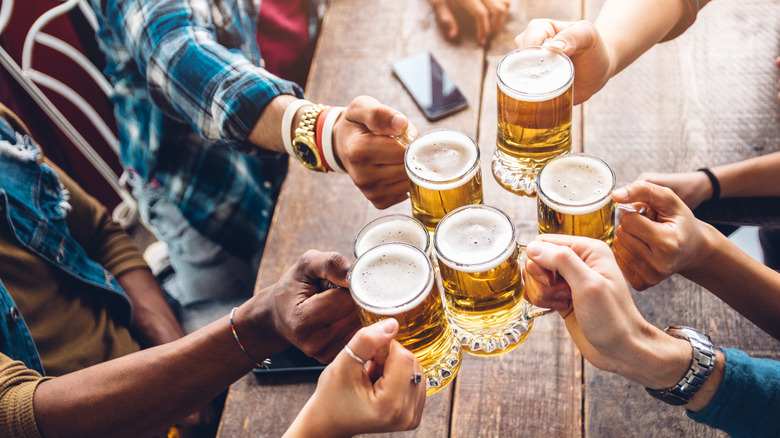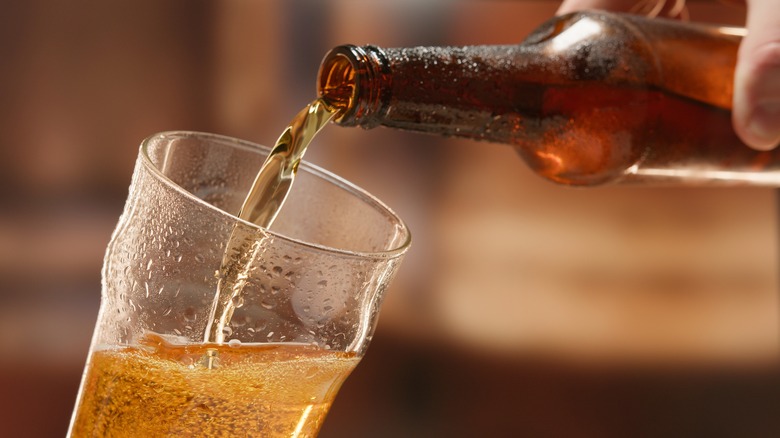Drinkflation Could Affect The Amount Of Booze In Your Beer
Yes, it's kind of silly making up new words all the time, particularly ones ending in "flation," but you get the picture: High prices, and how these are going to affect, as we already stated in the title, the amount of alcohol in your beer. As you may have already anticipated, the news is not good, at least not if you prefer a higher-octane beverage: Due to the expenses involved, some brewers are lowering the alcohol level in their beverages.
Now here's where the good news comes in, at least if you're in the U.S. or another country not part of the United Kingdom. The price increases that make higher-alcohol beers less affordable to produce aren't incurred during the manufacturing process, but instead come through taxation. Specifically, taxes levied by the British government. It seems that the higher the level of alcohol in a beer, the more tax the brewery owes the government, so brands including Foster's, Old Speckled Hen, and Heineken have been lowering their ABV by about 0.3%. As University of Sheffield research fellow Colin Angus explained to the Daily Mail, this reduction should save the companies some £250 million (which is equivalent to about $318 million). Still, for those of you playing along at home, this means that yes, drinkflation (for now) is a U.K.-only problem.
The bright side to less boozy beer
While some brewers rushing to lower the alcohol content in their beers are trying to put a spin on it by saying they're doing it as a public service to help people drink less, this seems highly unlikely. A bit too coincidental, we'd say, in a case where these same companies stand to benefit financially from such a move. Still, even if the health benefits are unintentional or at the very least collateral, they are real nonetheless. A review of decades' worth of studies on alcohol consumption found that even moderate drinking comes with serious side effects including a not-insignificant chance of dying ahead of your allotted threescore and ten (or threescore and 16, as the expected lifespan in the U.S. currently stands at 76).
Lower-ABV brews are actually on-trend, too. Research indicates that millennials and Gen Zs (the over-21s, that is) are changing the way they purchase beer by opting for less-intoxicating ones. In fact, many are leaning into more of a sober-curious lifestyle, with the result that non-alcoholic and alcohol-free beers are becoming more and more popular. In light of this, the news of slightly lighter British brews is ultimately a bit of a snooze.

